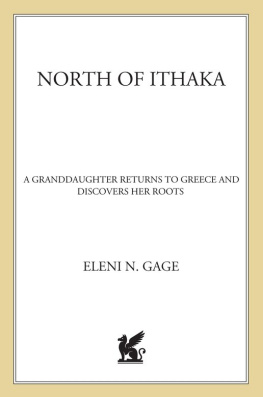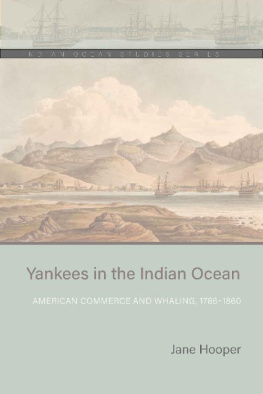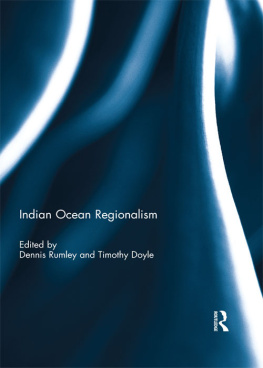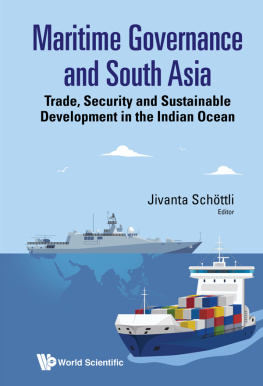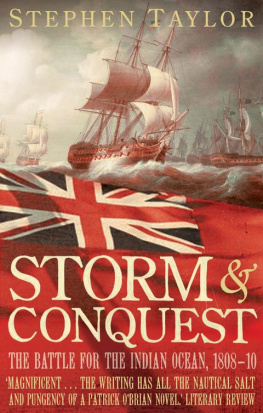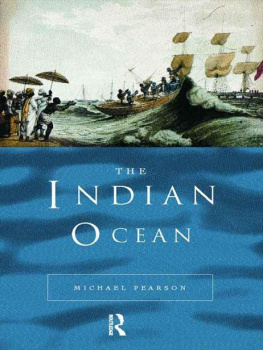Aden and the Indian Ocean Trade
ISLAMIC CIVILIZATION AND MUSLIM NETWORKS
Carl W. Ernst and Bruce B. Lawrence, editors
2007 The University of North Carolina Press
All rights reserved
Manufactured in the United States of America
Designed by Kimberly Bryant
Set in ITC Galliard
by Tseng Information Systems, Inc.
This book was published with the assistance of the William R.
Kenan Jr. Fund of the University of North Carolina Press.
The paper in this book meets the guidelines for permanence and durability of the Committee on Production Guidelines for Book Longevity of the Council on Library Resources.
Library of Congress Cataloging-in-Publication Data
Margariti, Roxani Eleni, 1969
Aden and the Indian Ocean trade : 150 years in the life of a
medieval Arabian port / Roxani Eleni Margariti. 1st ed.
p. cm. (Islamic civilization and Muslim networks)
Includes bibliographical references and index.
ISBN-13: 978-0-8078-3076-5 (cloth : alk. paper)
1. Aden (Yemen)CommerceHistory. 2. Indian Ocean RegionCommerceHistory. 3. ShippingYemenAden History. I. Title.
DS247.A27M37 2007
382.095335dc22 2006023439
11 10 09 08 07 5 4 3 2 1
Contents
Figures, Maps, and Tables
FIGURES
Judeo-Arabic document from the Cairo Geniza
Satellite image of Aden peninsula
Schematic map of caravan routes connecting Aden with the rest of Yemen
The Crater area
Birds-eye view of the port of Aden
Schematic plan of the medieval city of Aden
MAPS
1 The Indian Ocean and the Eastern Mediterranean: Seas, Regions, and Main Ports
2 The Gulf of Aden and the Southern Red Sea: Main Ports
3 The Hinterland of Aden, Including Archaeological Sites
4 The South Arabian Coast: Ports and Archaeological Sites East of Aden
TABLES
1 Ibn al-Mujwirs List of Entry and Exit Tolls
2 Aden Exit Tolls in Geniza Documents
3 Aden Import Taxes in Geniza Documents
Foreword
Aden and the Indian Ocean Trade: 150 Years in the Life of a Medieval Arabian Port is the sixth volume to be published in our series, Islamic Civilization and Muslim Networks.
Why make Islamic civilization and Muslim networks the theme of a new series? The study of Islam and Muslim societies is often marred by an overly fractured approach that frames Islam as the polar opposite of what Westerners are supposed to represent and advocate. Islam has been objectified as the obverse of the Euro-American societies that self-identify as the West. Political and economic trends have reinforced a habit of localizing Islam in the volatile Middle Eastern region. Marked as dangerous foreigners, Muslims are also demonized as regressive outsiders who reject modernity. The negative accent in media headlines about Islam creates a common tendency to refer to Islam and Muslims as being somewhere over there, in another space and another mind-set from the so-called rational, progressive, democratic West.
Ground-level facts tell another story. The social reality of Muslim cultures extends beyond the Middle East. It includes South and Southeast Asia, Africa, and China. It also includes the millennial presence of Islam in Europe and the increasingly significant American Muslim community. In different places and eras, it is Islam that has been the pioneer of reason, Muslims who have been the standard-bearers of progress. Muslims remain integral to our world; they are inseparable from the issues and conflicts of transregional, panoptic world history.
By itself, the concept of Islamic civilization serves as a useful counterweight to that of Western civilization, undermining the triumphalist framing of history that was reinforced first by colonial empires and then by the Cold War. Yet when the study of Islamic civilization is combined with that of Muslim networks, their very conjunction breaks the mold of both classical Orientalism and Cold War area studies. The combined rubric allows no discipline to stand by itself; all disciplines converge to make possible a refashioning of the Muslim past and a reimagining of the Muslim future. Islam escapes the timeless warp of textual norms; the additional perspectives of social sciences and modern technology forge a new hermeneutical strategy that marks ruptures as well as continuities, local influences as well as cosmopolitan accents. The twin goals of the publication series in which this volume appears are (1) to locate Islam in multiple pasts across several geo-linguistic, sociocultural frontiers, and (2) to open up a new kind of interaction between humanists and social scientists who engage contemporary Muslim societies. Networking between disciplines and breaking down discredited stereotypes will foster fresh interpretations of Islam that make possible research into uncharted subjects, including discrete regions, issues, and collectivities.
Because Muslim networks have been understudied, they have also been undervalued. Our accent is on the value to the study of Islamic civilization of understanding Muslim networks. Muslim networks inform the span of Islamic civilization, while Islamic civilization provides the frame that makes Muslim networks more than mere ethnic and linguistic subgroups of competing political and commercial empires. Through this broad-gauged book series, we propose to explore the dynamic past, but also to imagine an elusive future, both of them marked by Muslim networks. Muslim networks are like other networks: they count across time and place because they sustain all the mechanismseconomic and social, religious and politicalthat characterize civilization. Yet insofar as they are Muslim networks, they project and illumine the distinctive nature of Islamic civilization.
We want to make Muslim networks as visible as they are influential for the shaping and reshaping of Islamic civilization.
Carl W. Ernst & Bruce B. Lawrence, series editors
Acknowledgments
This project took off thanks to Abraham Udovitch and Mark Cohen, who exposed me to the wonderful world of the documentary Geniza and trained me in reading and analyzing Judeo-Arabic Geniza documents and in contextualizing the merchants testimonies within a broader evidentiary and historiographic record. Their insights, patience, and encouragement over the years have been invaluable. In their expert curatorship of the S. D. Goitein Laboratory for Geniza Research at Princeton, they preserve and expand Goiteins formidable legacy and make of it an invaluable gift to future generations of scholars. I also owe a great deal to Molly Greene, a mentor, role model, and dear friend who has shaped my ideas about merchants, maritime trade, and mercantile culture; conversations with her about these topics have encouraged me to think comparatively and have kept me convinced of the relevance of my work on medieval Aden to the study of seaports and merchants across the seas and through the ages. Thomas Leisten read this work early on; his experience and insights into the material culture of Middle Eastern cities profoundly influenced my approach to the study of the medieval Arabian port.
Dan Varisco and Jere Bacharach read my manuscript patiently and repeatedly at different stages of preparation and offered invaluable and detailed advice. I am extremely grateful to both of them. Dan has been a great supporter of this project from the beginning and helped me enormously in fitting the study of Aden within the broader context of Yemeni historiography, which he knows so well. He exposed me to the newly emerging and marvelous world of Rasulid documents and supplied me not only with many references but also with volumes from Yemeni bookstores to which I would not have had access in the States.


